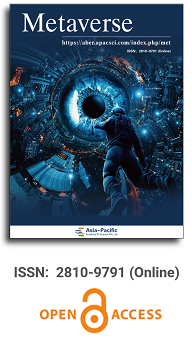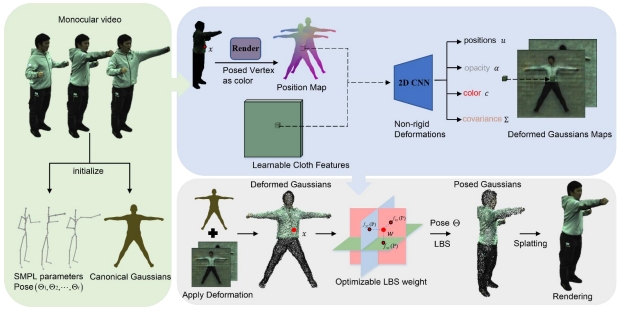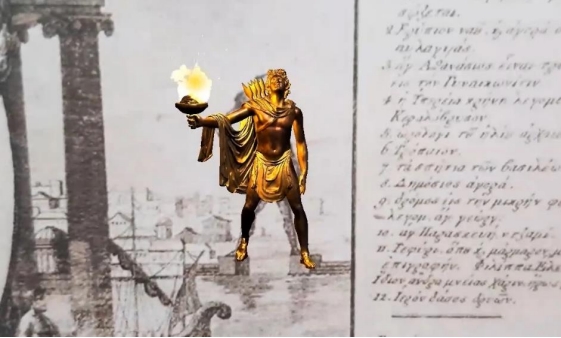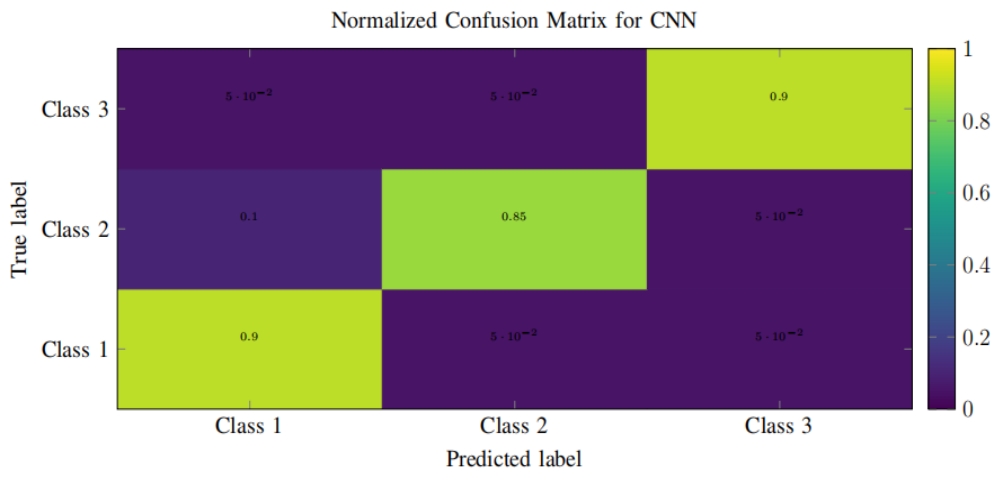
Asia Pacific Academy of Science Pte. Ltd. (APACSCI) specializes in international journal publishing. APACSCI adopts the open access publishing model and provides an important communication bridge for academic groups whose interest fields include engineering, technology, medicine, computer, mathematics, agriculture and forestry, and environment.



From broad reality to the Metaverse: Critical reflection on the contribution of education
Vol 2, Issue 2, 2021
Download PDF
Abstract
Augmented reality is a concept that includes virtual reality, augmented reality and hybrid reality. It has made remarkable progress in recent years and has a great impact on understanding education. Based on two key concepts: immersion and existence, the study of extended reality is helpful to improve teaching. However, these contributions need to be reviewed on a key theoretical basis to avoid falling into technophobia without scientific evidence. The purpose of this article is to understand and evaluate the contribution of a wide range of realities to education and the educational challenges faced before the development of Metaverse. To the end, RST defines each type of reality and critically evaluates their application in the field of education. Second, it puts forward critical arguments on the advantages and disadvantages of these technologies in educational practice. Third, it describes the challenges faced by Metaverse in education. This analysis shows that augmented reality contributes to the innovative development and improvement of the teaching process, despite the lack of teacher training to design the learning experience according to augmented reality, and the lack of interdisciplinary cooperation in technology and education. These results have affected the development of Metaverse, which is another step in expanding the evolution of reality and will have a significant impact on the field of education. The survey results show that it is necessary to design an ethics code, develop a culture and protect the identity of users.
Keywords
References
- Cabero J. La formación virtual en el nuevo entramado 2.0: El e-learning 2.0 (Spanish) [Virtual training in the new framework 2.0: E-learning 2.0]. In: Aguaded JI, Cabero J (editors). Tecnologías y medios para la educación en la e-sociedad. Madrid: Alianza; 2013. p. 23–52.
- Cabello J, Barroso J, Lorent MC. Educational Technology: History, concept and conceptual basis. In: Cabero J, Barroso J (editors). Nuevos retos en tecnología educativa. Spain: Synthesis; 2015. p. 19–39.
- Moreira MA. Integration and teaching use of ICT in educational institutions. Case studies. Journal of Education 2010; (352): 77–97.
- Fernandez Cruz FJ, Fernandez Dias MJ, Rodriguez Mantila JM. The integration process and pedagogical use of ICT in Madrid schools. Education XX1 2018; 21(2): 395–416.
- Adell SJ. Tendencias en educación en la sociedad de las tecnologías de la información (Spanish) [Trends in education in the information technology society]. EDUTEC. Revista Electrónica de Tecnología Educativa 1997; (7): a007.
- Area M. Escuela digital: Los materiales didácticos en la Red (Spanish) [Digital school: Teaching materials on the web]. Barcelona: Editorial Graó; 2020. p. 249.
- Area M, Adell J. Tecnologías digitales y cambio educativo. Una aproximación crítica (Spanish) [Digital technologies and educational change. A critical approach]. REICE. Revista Iberoamericana sobre Calidad, Eficacia y Cambio en Educación 2021; 19(4): 83–96.
- Bolton CA, Kent C, Williams H. Virtual learning environment participation and learning results of “brick and concrete” University. Computers and Education 2018; (126): 129–142.
- Muñoz-Cristóbal JA, Gallego-Lema V, Arribas-Cubero HF, et al. Using virtual learning environments in bricolage mode for orchestrating learning situations across physical and virtual spaces. Computer & Education 2017; 109: 233–252.
- Schroeder R. Possible worlds: The social dynamic of virtual reality technologies. Boulder: Westview Press; 1996.
- Yuen SC, Yuen PK. Mobile learning. In: Tomei LA (editor). Encyclopedia of information technology curriculum integration. Hong Kong: Idea Group; 2008. p. 95–99.
- Cheon J, Lee S, Crooks SM, et al. An investigation of mobile learning readiness in higher education based on theory of planned behavior. Computer & Education 2012; 59(3): 1054–1064.
- Briz-Ponce L, Pereira A, Carvalho L, et al. Learning with mobile technologies—Students’ behavior. Computers in Human Behavior 2017; 72: 612–620.
- Crompton H, Burke D. Application of mobile learning in Higher Education: Systematic review. Computers in Human Behavior 2018; 123: 53–64.
- Rogers S. Virtual reality: The learning aid of the 21st century. New Jersey: Forbes; 2019.
- Arici F, Yildirim P, Caliklar S, et al. Research trends in the use of augmented reality in science education: Content and bibliometric analysis. Computer & Education 2019; 142(103647): 1–44.
- Zhan T, Yin K, Xiong J, et al. Augmented reality and virtual reality displays: Perspectives and challenges. IScience 2020; 23(8): 1–13.
- Cöltekin A, Griffin AL, Slingsby A, et al. Geospatial information visualization and extended reality display. Digital earth Handbook. Germany: Springer; 2020. p. 229–277.
- Dall’Acqua L, Gironacci IM. Political decision-making and security intelligence: Recent technology and technological developments. Pennsylvania: IGI global; 2019.
- Gandolfi E, Kosko KW, Fedig RE. Situating presence within extended reality for teacher training: Validation of the extended Reality Presence Scale (XRPS) in preservice teacher use of immersive 360 video. British Journal of Educational Technology 2020; 52(2): 824–841.
- Meirieu P. El futuro de la pedagogía (Spanish) [The future of pedagogy]. Teoría de la Educación: Revista Interuniversitaria 2022; 34 (1): 69–81.
- Bisquerra R. Metodología de la investigación educative (Spanish) [Methodology of educational research]. Madrid: La Muralla; 2009.
- McMillan J, Schumacher S. Investigación educativa: Una introducción conceptual (Spanish) [Educational research: An introduction to concepts]. Madrid: Pearson Addison Wesley; 2008.
- Gómez-García M, Palomo R, Guillén FD, et al. Aprendizaje con móviles. Realidad virtual, aumentada y mixta (Spanish) [Mobile learning. Virtual, augmented and blended reality]. In: Sanchez E, Colomo E, Ruiz J (editors). Tecnologías de la Información y la Comunicación en Contextos Educativos. Spanish: Sintesis; 2020. p. 141–152.
- Ott M, Freina L (editors). A literature review on immersive virtual reality in education: State of the art and perspectives. E-learning and Software for Education Conference; 2009 Sept 4–Oct 4; Bucharest Romania. Bucharest: Carol I National Defence University Publishing House; 2015.
- Slater M. A note on presence terminology. Presence Connect 2003; 3(3): 1–5.
- Potkonjak V, Gardner M, Callaghan V, et al. Virtual laboratories for education in science, technology, and engineering. Computer & Education 2016; 95: 309–327.
- Radianti J, Majchrzak TA, Fromm J, et al. A systematic review of immersive virtual reality applications for higher education: Design elements, lessons learned, and research agenda. Computer and Education 2020; 147: 1–33.
- Jensen L, Konradsen F. A review of the use of virtual reality head-mounted displays in education and training. Education and Information Technology 2017; 23 (4): 1515–1529.
- Krokos E, Placiant C, Varshney A. Virtual memory palaces: Immersion aids recall. Virtual Reality 2019; (23): 1–15.
- Makransky G, Terkildsen TS, Mayer RE. Adding immersive virtual reality to a science lab simulation causes more presence but less learning. Learning and Instruction 2017; 60: 225–236.
- Duncan I, Miller A, Jiang S. A taxonomy of virtual worlds usage in education. British Journal of Educational Technology 2012; 43(6): 949–964.
- Cordell TP, Mizel DW (editors). Augmented reality: The application of head up display technology in manual manufacturing process. Proceedings of the 25th Hawaii International Conference on Systems Science; 1992 Jan 8–10; Hawaii. Honolulu: University of Hawaiʻi; 1992. p. 659–669.
- Lee K. Augmented reality in education and training. TechTrends 2012; 56(2): 13–21.
- Azuma R. A survey of augmented reality. Presence: Teleoperators and Virtual Environments 1997; 6(4), 355–385.
- Gómez GM, Palomo R. Realidad aumentada y recursos móviles (Spanish) [Augmented reality and mobile resources]. In: Garcia J, Garcia M (editors). Tecnologías de la comunicación y la información plicadas a la educación. Madrid: Editorial Síntesis; 2016. p. 131–149.
- Garzón J, Pavón J, Baldiris S. Systematic review and meta-analysis of augmented reality in educational settings. Virtual Reality 2019; 23(1): 447–459.
- Ibáñez MB, Delgado-Kloos C. Augmented reality for STEM learning: A systematic review. Computer & Education 2018; 123: 109–123.
- Boaler J, Chen L, Williams C, et al. Seeing as understanding: The importance of visual mathematics for our brain and learning. Journal of Applied and Computational Mathematics 2016; 5(5): 1–6.
- Sollerval H. Collaborative mathematical inquiry with augmented reality. Research and Practice of Technology Intensive Learning 2012; 7(3): 153–173.
- Demitriadou E, Stavroulia KE, Lanitis A. Comparative evaluation of virtual and augmented reality for teaching mathematics in primary education. Education and Information Technologies 2020; 25(1): 381–401.
- Barzulo F. Recursos móviles y realidad aumentada (Spanish) [Mobile resources and augmented reality]. In: Cacheiro ML, Sánchez C, González JM (editors). Recursos tecnológicos en contextos educativos. Madrid: Universidad Nacional de Educación a Distancia; 2015. p. 399–432.
- Arango-López J, Cerón CC, Collazos CA, et al. Creando: Tool for creating pervasive games to increase the learning motivation in higher education students. Telematics and Informatics 2019; (38): 62–73.
- Fombona J, Vázquez-Cano E. Possibilities of using geolocation and augmented reality in education. Education XX1 2017; 20(2): 319–342.
- Suh A, Prophet J. The state of immersive technology research: A literature analysis. Computers in Human Behavior 2018; 86: 77–90.
- Garzón J, Acevedo J. Meta-analysis of the impact of Augmented Reality on students’ learning gains. Educational Research Review 2019; 27(1): 244–260.
- Pellas N, Fotaris P, Kazanidis I, et al. Augmenting the learning experience in primary and secondary school education: A systematic review of recent trends in augmented reality game-based learning. Virtual Reality 2018; 23(4): 329–346.
- Akçayır M, Akçayır G. Advantages and challenges associated with augmented reality for education: A systematic review of the literature. Educational Research Review 2017; 20(1): 1–11.
- Milgram P, Kishino A. Taxonomy of mixed reality visual displays. IEICE Transactions on Information and Systems 1994; 12(12): 1321–1329.
- Pellas N, Kazanidis I, Palaigeorgiou G. A systematic literature review of mixed reality environments in K-12 education. Education and Information Technology 2019; 25: 2481–2520.
- Yusoff RCM, Ibrahim R, Zaman HB, et al. Evaluation of user acceptance of mixed reality technology. Australasian Journal of Educational Technology 2011; 27(8): 1369–1387.
- Tamura H, Yamamoto H, Katayama A. Mixed reality: Future dreams appear on the boundary between the real world and the virtual world. Computer Graphics and Applications 2001; 21(6): 64–70.
- Ponto K, Kuester F, Nidefer R, et al. Virtual bounds: A teleoperated mixed reality. Virtual Reality 2006; 10(1): 41–47.
- Lindgren R, Johnson-Glenberg M. Emboldened by embodiment: Six precepts for research on embodied learning and mixed reality. Educational Researcher 2013; 42(8): 445–452.
- Ke F, Lee S, Xu X. Teaching and training in a mixed reality comprehensive learning environment. Computers in Human Behavior 2016; 62: 212–220.
- Tang YM, Au KM, Lau HC, et al. Evaluating the effectiveness of learning design with mixed reality (MR) in higher education. Virtual Reality 2020; 24(4): 797–807.
- Kurilovas E. Evaluation of quality and personalization of VR/AR/MR learning systems. Behavior and Information Technology 2016; 35(11): 998–1007.
- Johnson Glenberg MC, Birchfield DA, Tolentino L, et al. Collaborative embodied learning in mixed reality motion capture environments: Two science studies. Journal of Educational Psychology 2014; 106 (1): 86–104.
- Tscoll M, Lindgren R. Learning dialogue design: How parents support their children’s science learning in immersive simulation. Science Education 2016; 10(5): 877–902.
- Chang C, Lee J, Wang C, et al. Improving the authentic learning experience by integrating robots into the mixed reality environment. Computer and Education 2020; 55 (4): 1572–1578.
- Frank JA, Kapila V. Mixed reality learning environment: Integrate the mobile interface with the laboratory test bed. Computer & Education 2017; 110(4): 88–104.
- Lindgren R, Tscholl M, Wang S, et al. Enhancing learning and engagement through embodied interaction within a mixed reality simulation. Computer and Education 2016; 95(1): 174–187.
- Trawler V. Student engagement literature review. Creative Education 2010; 11(2): 1–15.
- Allcoat D, Hatchard T, Azmat F, et al. Education in the digital age: Learning experience in virtual and mixed realities. Journal of Educational Computing Research 2021; 59(5): 795–816.
- Leonard SN, Fitzgerald RN. Holographic learning: A mixed reality experiment on micro soft hololens in a middle school in Australia. Research in Learning Technology 2018; 26: 1–12.
- Weng C, Rathinasabapathi A, Weng A, et al. Mixed reality of science education as learning support: A revived science book. Journal of Educational Computing Research 2018; 57(3): 777–807.
- Dörner R, Göbel S, Effelsberg W, et al. Serious game. Foundation, concept and practice. In: Duncan I, Miller A, Jiang S (editors). A taxonomy of virtual worlds usage in education. Berlin: Springer; 2016.
- Lee H, Parsons D, Kwon G, et al. Cooperation begins: Encouraging critical thinking skills through cooperative reciprocity using a mobile learning game. Computer and Education 2016; 97: 97–115.
- Çoltekin A, Lochhead I, Madden M, et al. Extended Reality in spatial sciences: A review of research challenges and future directions. ISPRS International Journal of Geo-Information 2020; 9(7): 1–29.
- Prendes MP, Cerdán F. Tecnologías avanzadas para afrontar el reto de la innovación (Spanish) [Advanced technologies to meet the challenge of educational innovation]. RIED-Revista Iberoamericana de Educación a Distancia 2021; 24(1): 35–53.
- Maas MJ, Hughes JM. Virtual, augmented and mixed reality in K-12 education: A literature review. Technology, Pedagogy and Education 2020; 29 (2): 231–249.
- Siyaev A, Jo GS. Towards aircraft maintenance metaverse using speech interactions with virtual objects in Mixed Reality. SensorS 2021; 21 (6): 1–21.
- Eschen H, Kötter T, Rodeck R, et al. Augmented virtual reality for inspection and maintenance processes in the aviation industry. Procedia Manufacturing 2018; 19: 156–163.
- Gonzalo M. Metaverso, ¿para cuándo? O cómo reconocerlo cuando llegue (Spanish) [Metaverse, for when? Or how to recognize it when it arrives] [Internet]. Madrid: Newtral; 2021. Available from: https://bit.ly/3Gesijl.
- Ribeiro R. Metaverse and the educational potential: Is it so far away? [Internet]. Cambridge: Cambridge University Press & Assessment; 2021. Available from: https://bit.ly/34PDBR0.
- Rodríguez P. Metaverso: Hay otros mundos, pero están en éste (Spanish) [Metaverse: There are other worlds, but they are in this one]. Fundación Telefónica, 2021. Available from: https://bit.ly/3qEHvVe.
- Stephenson N. Snow Crash. United States: Bantam Books; 1992.
- Davis A, Khazanchi D, Murphy J, et al. Avatars, people, and virtual worlds: Foundations for research in metaverses. Journal of the Association for Information Systems 2009; 10(2): 90–116.
- Ball M. The Metaverse: What it is, where to find it, and who will build it [Internet]. [updated 2020 Jan 13]. Available from: https://bit.ly/34U1SW5.
- Martín-Ramallal P, Merchán-Murillo A. Realidad virtual. Metaversos como herramientapara la teleformación (Spanish) [Virtual reality. Metaverses as a tool for e-learning]. In: Casas Moreno P, Paramio Pérez G, Gómez Pablos VB (editors). Realidades educativas en la esfera digital: Sistemas, modelos y paradigmas de aprendizaje. Seville: Egregius Ediciones; 2019. p. 15–38.
- Choi H, Kim S. A content service deployment plan for metaverse museum exhibitions-Centering on the combination of beacons and HMDs. International Journal of Information Management 2017; 37(1): 1519–1527.
- Bailenson JN, Yee N. Digital chameleon: Automatically assimilate nonverbal gestures in an immersive virtual environment. Psychological Science 2005; 16(10): 814–819.
- Pelletier K, Brown M, Brooks C, et al. Educause Horizon Report. Teaching and Learning Edition. Boulder: Educause; 2021.
- Park S, Kim SP, Whang M. Individual’s social perception of virtual avatars embodied with their habitual facial expressions and facial appearance. Sensors 2021; 21(5986): 1–18.
- Dionisio JD, Burns WG, Gilbert R. 3D virtual world and metaverse: Current status and future possibilities. AMC Calculation Surveys 2013; 45(3): 1–38.
- Garrido Nigo P, Rodriguez Moreno F. The reality of virtual worlds: Pros and cons of their application to foreign language teaching. Interactive Learning Environment 2013; 23(4): 1–18.
- Zheng RZ. Cognitive and affective perspectives on immersive technology in education. Hershey: IGI Global; 2020.
- Han HC. Teach visual learning through virtual world experience: Why do we need a virtual world of art education? Art Education 2015; 68(6): 22–27.
- Wang J. Handshakes in cyberspace: Bringing the cultural differences through effective intercultural communication and collaboration. National Convention of the Association for Educational Communications and Technology 2001; 513–519.
- Castells M. La era de la información: Economía, sociedad y cultura (Spanish) [The information age: Economy, society and culture]. Mexico: Siglo XXI Editores; 2005.
- Smithson A. The metaverse manifesto [Internet]. 2021. Available from: https://bit.ly/3tdHfyu.
- Fernández JA. Cinco asignaturas que debe aprobar la universidad que viene (Spanish) [Five subjects to pass in the next university]. El País, 2021 Nov 19. Available from: https://bit.ly/3Kli1En.
- Lopez-Ruperez F. El currículo y la educación en el siglo XXI. La preparación del futuro y el enfoque por competencias (Spanish) [Curriculum and education in the 21st century: Preparing the future and the competency-based approach]. Nalerigu: Nasia; 2020.
- NEPT. Reimagining the role of technology in education [Internet]. U.S. Department of Education; 2017. Available from: https://tech.ed.gov.
Supporting Agencies
Copyright (c) 2021 Pablo Javier Ortega-Rodriguez

This work is licensed under a Creative Commons Attribution 4.0 International License.

This site is licensed under a Creative Commons Attribution 4.0 International License (CC BY 4.0).

Prof. Zhigeng Pan
Professor, Hangzhou International Innovation Institute (H3I), Beihang University, China

Prof. Jianrong Tan
Academician, Chinese Academy of Engineering, China
Conference Time
December 15-18, 2025
Conference Venue
Hong Kong Convention and Exhibition Center (HKCEC)
...
Metaverse Scientist Forum No.3 was successfully held on April 22, 2025, from 19:00 to 20:30 (Beijing Time)...
We received the Scopus notification on April 19th, confirming that the journal has been successfully indexed by Scopus...
We are pleased to announce that we have updated the requirements for manuscript figures in the submission guidelines. Manuscripts submitted after April 15, 2025 are required to strictly adhere to the change. These updates are aimed at ensuring the highest quality of visual content in our publications and enhancing the overall readability and impact of your research. For more details, please find it in sumissions...






.jpg)
.jpg)

